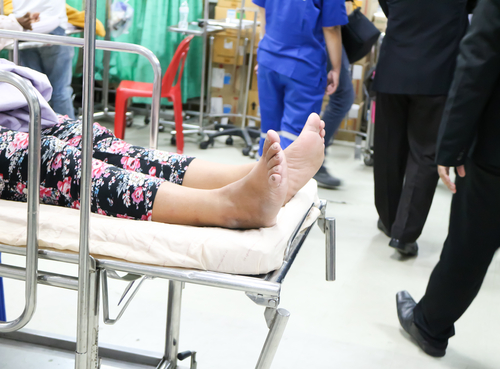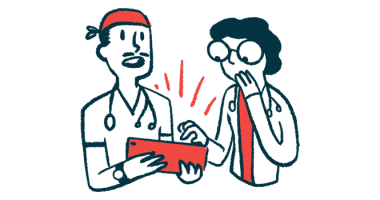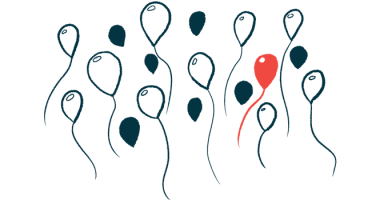How Can I Reduce the Risk of Acute Porphyria Attacks?

If you have one of the acute types of porphyria you may have experienced acute porphyria attacks. These attacks usually consist of pain in the abdomen, which may spread into the back and thighs. They also may involve nausea, vomiting, constipation, confusion, and disorientation. Severe attacks may require hospitalization.
Many of these periods are provoked by certain circumstances that may be preventable. Here is more information about the factors that can trigger attacks and how you can avoid them.
What triggers acute porphyria attacks?
Researchers think that factors leading to increased production of heme — a major component of hemoglobin — cause most cases of acute porphyria attacks in people with any of this group of genetic disorders.
Heme, an essential molecule that contains iron, is a key component of hemoglobin, the molecule that carries oxygen in red blood cells. Acute porphyrias are caused by genetic mutations in one of several genes that contain the instructions to make the enzymes needed in the heme production pathway. Such mutations cause a lack of that particular enzyme, leading to a backup of the heme pathway and increased levels of heme precursor molecules called porphyrins. Any factor that signals cells to create more heme can lead to a buildup of porphyrins and cause acute attacks.
Being proactive can help you to reduce your risk of acute attacks.
Be careful about medications
There are a large number of medications that can trigger attacks. These medications are known as porphyrinogens and include some anesthetics, antihistamines — allergy medicines — antiepileptics, antihyperglycemics, antibiotics, and heart medicines. A patient’s reaction to any of these medications can vary from person to person, which can make it hard to predict which medications might cause problems.
To help patients and physicians know which treatments are generally safe and which to avoid, the Norwegian Porphyria Centre (NAPOS) developed the Drug Database for Acute Porphyria that details the safety of a large number of medications for people with porphyria.
Reduce your alcohol consumption
Another factor that is can cause acute porphyria attacks is alcohol, especially in excess. Alcohol consumption can lead to acute attacks and, over time, porphyrins can accumulate in the liver and cause liver damage. This can lead to porphyria cutanea tarda, one of the cutaneous types of porphyria. If you have one of the types of acute porphyria, you should eliminate, or at least reduce as much as possible, your consumption of alcoholic beverages.
Consult your doctor before dieting
Certain forms of dieting for weight loss also can cause acute porphyria attacks. For example, low-calorie diets and diets low in carbohydrates can be triggers. If you wish to lose weight, you should discuss with your doctor the diet options that are safe for you.
Stop smoking
Some studies have suggested that smoking also may be a trigger for acute porphyria attacks. You should avoid smoking, or try stopping if you do smoke, to reduce your risk of acute attacks.
Avoid hormonal contraceptives
Hormones also can play a factor in acute episodes of porphyria. Two major hormones that may trigger acute porphyria attacks are the female hormones progesterone and estrogen.
Progesterone and estrogen levels rise during the menstrual cycle and many women with acute porphyrias experience attacks during this time. Contraceptives as well as hormone replacement therapy for postmenopausal women also contain progesterone and estrogen. If you have acute porphyria, you should avoid contraceptives and hormone replacement therapy unless absolutely necessary. If you experience frequent attacks during your menstrual cycle, your doctor may be able to prescribe medications that can prevent the increase in progesterone and estrogen.
Reduce stress
Stress has been reported as a possible factor causing acute porphyria attacks although researchers don’t yet know the exact mechanism. Keeping your stress levels low could help reduce your risk of having an acute porphyria attack.
Last updated: Dec. 8, 2020
***
Porphyria News is strictly a news and information website about the disease. It does not provide medical advice, diagnosis, or treatment. This content is not intended to be a substitute for professional medical advice, diagnosis, or treatment. Always seek the advice of your physician or other qualified health provider with any questions you may have regarding a medical condition. Never disregard professional medical advice or delay in seeking it because of something you have read on this website.






